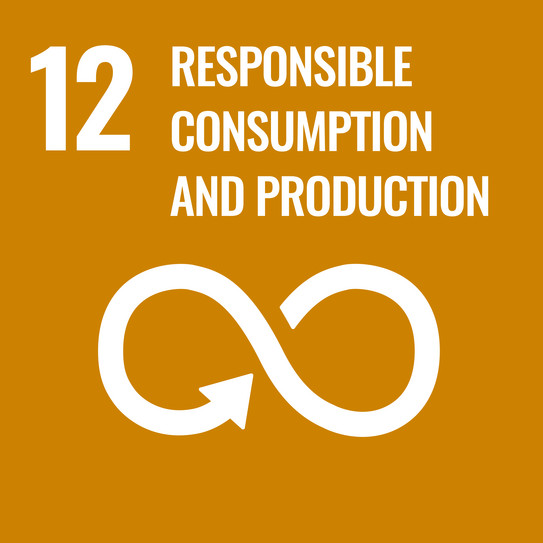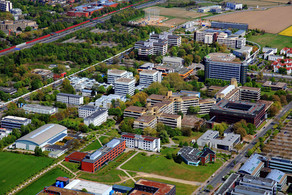Goal 12: Responsible consumption and production
SDG 12 is divided into several sub-goals. Goal 12.1 calls for the implementation of the Ten-Year Programme on Sustainable consumption and production patterns (Rio de Janeiro 2012). Starting from the fundamental imperative of sustainable management and efficient use of natural resources (12.2), the requirements are directed at reducing food losses (12.3), environmentally sound management of chemicals (12.4), reducing waste generation (12.5) and support for sustainable (production) practices and sustainability reporting for larger companies (12.6). Furthermore, sustainable practices should be promoted in public procurement (12.7) and information on sustainable lifestyles should be provided to raise sustainability awareness (12.8).
There is a call for scientific and technological and technological strengthening of developing countries (12.a), the development of sustainable tourism (12.b, see also SDG 8) and the abolition of inefficient subsidies for fossil fuels (12.c).

News on responsible consumption and production
Mensa Survey
- Projekte
- 12 Nachhaltige/r Konsum und Produktion
- 17 Partnerschaften zur Erreichung der Ziele

Nutrition is a relevant building block for more sustainability. Therefore, together with the Studierendenwerk and the AStA, a survey was conducted to find out what the eating habits of visitors to the refectories are like, what they want from university catering and how important sustainability, animal welfare and environmental protection should be in the menus.
More than 3000 TU members took part in the survey. Most said they were satisfied overall and used the catering services several times a week. About 33% of the participants eat vegetarian, 14% vegan. Accordingly, there were mainly suggestions and wishes for an increased vegan/vegetarian offer. The majority was also in favour of labelling with a CO2 balance.
You can find the entire evaluation in the article on the canteen survey.




